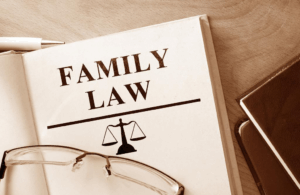The Role of Family Lawyers in Navigating Complex Family Legal Matters
Family law encompasses a wide range of legal issues that can arise within familial relationships. From divorce and child custody disputes to property settlements and domestic violence cases, the complexities involved often require the expertise of a qualified family lawyer. These legal professionals play a crucial role in guiding individuals through turbulent times, ensuring that their rights and interests are protected. This article explores the multifaceted role of family lawyers and how they assist clients in navigating complex family legal matters.
Understanding Family Law
Family law is a distinct area of legal practice that deals specifically with issues related to family relationships. It includes a variety of matters such as marriage, divorce, child custody, and adoption. The laws governing these areas can vary significantly from one jurisdiction to another, making it essential for individuals to seek legal advice tailored to their specific circumstances.
In Australia, family law is primarily governed by the Family Law Act 1975, which outlines the legal framework for resolving family disputes. Understanding this framework is vital for anyone involved in family legal matters, as it sets out the rights and responsibilities of all parties involved.
The Importance of Legal Representation
Engaging a family lawyer can make a significant difference in the outcome of a case. Legal representation ensures that individuals are equipped with the knowledge and skills necessary to navigate the complexities of family law. Family lawyers are trained to interpret the law and apply it to their clients' situations, providing invaluable support during what can often be an emotionally charged time.
Moreover, family lawyers near me can help clients avoid common pitfalls. Many individuals may not be aware of their rights or the legal implications of their actions, leading to decisions that could negatively impact their cases. A family lawyer can provide guidance on the best course of action, helping clients to make informed decisions that align with their long-term goals.
Key Areas of Family Law Practice
Family lawyers specialise in various aspects of family law, each requiring a unique set of skills and knowledge. The following are some of the key areas in which family lawyers typically operate:
Divorce and Separation
Divorce is often one of the most challenging experiences a person can go through. The process can be emotionally draining, and the legalities involved can be overwhelming. A family lawyer can assist clients in understanding their rights and obligations during a divorce, including issues related to property division, spousal maintenance, and child custody arrangements.
In cases of separation, family lawyers can help individuals negotiate settlement agreements that are fair and equitable. They can also provide mediation services to facilitate discussions between parties, helping to reach amicable resolutions without the need for lengthy court proceedings.
Child Custody and Support
Child custody disputes are often at the heart of family law cases. Family lawyers play a critical role in advocating for the best interests of children while also ensuring that parents' rights are respected. They can help parents navigate the complexities of custody arrangements, including shared parenting plans and visitation rights.
In addition to custody issues, family lawyers also assist with child support matters. They can provide guidance on the calculation of support payments and help clients understand their financial obligations. This support is crucial in ensuring that children receive the care and support they need, regardless of their parents' relationship status.
The Mediation Process
Mediation is an alternative dispute resolution method that can be particularly effective in family law cases. It involves a neutral third party who facilitates discussions between disputing parties, helping them to reach a mutually acceptable resolution. Family lawyers often play a vital role in this process, offering their expertise to ensure that their clients' interests are adequately represented.
Benefits of Mediation
One of the primary benefits of mediation is that it can be less adversarial than traditional court proceedings. This approach can help preserve relationships, particularly when children are involved. Family lawyers can guide clients through the mediation process, ensuring that they are prepared and that their rights are protected.
Mediation can also be a more cost-effective solution compared to litigation. Court proceedings can be lengthy and expensive, whereas mediation often leads to quicker resolutions. Family lawyers can help clients assess whether mediation is a suitable option for their circumstances, providing valuable insights into the potential benefits and drawbacks.
Property Settlements
Property settlements are a significant aspect of family law, particularly in divorce cases. Determining how assets and liabilities are divided can be a complex process, often requiring the expertise of a family lawyer. They can assist clients in understanding their entitlements and navigating the legal framework surrounding property division.

Factors Influencing Property Division
Several factors influence how property is divided in a divorce, including the length of the marriage, the financial and non-financial contributions of each party, and the future needs of both individuals. Family lawyers can help clients gather the necessary documentation and evidence to support their claims, ensuring that they receive a fair settlement.
Additionally, family lawyers can negotiate on behalf of their clients, aiming to reach an agreement that is satisfactory for all parties involved. If an agreement cannot be reached, family lawyers can represent clients in court, advocating for their rights and interests throughout the legal process.
Domestic Violence and Family Law
Domestic violence is a serious issue that can have devastating effects on individuals and families. Family lawyers are often called upon to assist victims of domestic violence in seeking protection and legal recourse. They can help clients obtain intervention orders, ensuring their safety and the safety of their children.
Legal Protections Available
In Australia, legal protections are available for victims of domestic violence under various laws. Family lawyers can guide clients through the process of obtaining these protections, providing support and advocacy during a challenging time. They can also assist with related legal matters, such as custody arrangements and property settlements, ensuring that victims' rights are upheld.
Moreover, family lawyers can connect clients with support services, including counselling and advocacy groups, helping them to navigate the emotional and psychological aspects of their situation. This holistic approach is essential in empowering victims and facilitating their recovery from trauma.
Choosing the Right Family Lawyer
Selecting the right family lawyer is a crucial step in navigating complex family legal matters. Individuals should consider several factors when making their choice, including the lawyer's experience, specialisation, and approach to client relationships.
Experience and Specialisation
When seeking a family lawyer, it is essential to look for someone with experience in the specific area of family law relevant to the case. For instance, if child custody is a primary concern, a lawyer with a strong background in this area will be better equipped to handle the complexities involved.
Furthermore, prospective clients should assess the lawyer's track record and reputation within the legal community. Online reviews, testimonials, and referrals from trusted sources can provide valuable insights into a lawyer's capabilities and client satisfaction.
Client-Lawyer Relationship
Establishing a strong client-lawyer relationship is vital for effective legal representation. Individuals should seek a lawyer who demonstrates empathy, understanding, and a willingness to listen to their concerns. A good family lawyer will prioritise open communication, ensuring that clients feel supported and informed throughout the legal process.
Additionally, potential clients should discuss fees and payment structures upfront to avoid any misunderstandings later on. Transparency in this regard can foster trust and confidence in the lawyer-client relationship.

Conclusion
The role of family lawyers in navigating complex family legal matters cannot be overstated. They provide essential support and guidance to individuals facing challenging situations, ensuring that their rights and interests are protected. From divorce and child custody disputes to property settlements and domestic violence cases, family lawyers are equipped with the knowledge and skills necessary to navigate the intricacies of family law.
By understanding the various aspects of family law and the importance of legal representation, individuals can make informed decisions that align with their best interests. Choosing the right family lawyer is a critical step in this process, as it can significantly impact the outcome of a case. Ultimately, family lawyers serve as advocates for their clients, helping them to navigate the complexities of family law with confidence and clarity.
See Also: Understanding Family Law: what you need to know about Family Lawyers.


